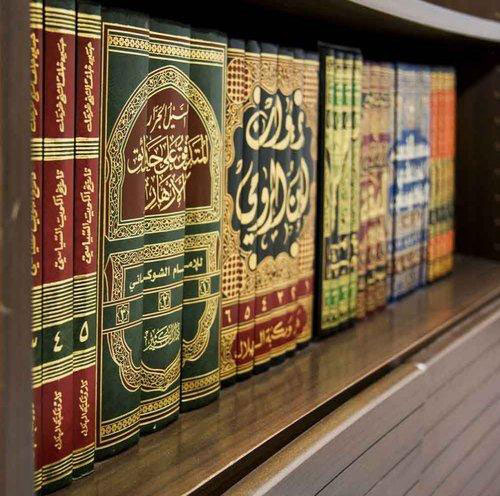Explanations about ijtihadi interpretation of Quranic verses
Ijtihadi interpretation of Qur'anic verses has been a fundamental method in writing authentic interpretation books such as Tafsir al-Mizan. Considering the historical age of interpretation that has continued since the time of the Holy Prophet (PBUH) until now, various branches of interpretation methods of the verses of the Holy Quran have been created and expanded throughout history.
Introduction
There are differences in the validity of different interpretations among Shiites and Sunnis. But what is of special importance in common is the knowledge, awareness, knowledge, understanding and understanding of the commentator. The interpreter must have a high command of Arabic literature and Islamic jurisprudence, because understanding, adapting, analyzing and interpreting the verses and traditions of the Qur'an requires an expert, knowledgeable and knowledgeable examiner.

Reflection on the luminous verses of the Holy Quran
What is the interpretation of ijtihad?
Ijtihadi interpretation is the most common way to understand the verses of the Quran. As mentioned in the previous articles, there are different types of interpretation. The method of interpretation by vote and the method of narrative interpretation are considered as extreme and excessive methods in interpretation, respectively.
In the method of interpretation by opinion, the interpreter relies only on his knowledge, which can be based on his intuition or his acquired knowledge. While in the narration method, the commentator only interprets the verses based on the traditions and quotations of the past that he is sure of their validity. It can be claimed that the interpretation of ijtihad is in the middle of this method. In this type of interpretation, the religious scholar interprets the verses of the Qur'an through his understanding based on his intellect and tact. In this method, the interpreter also uses narrations for completion and better understanding. In general, the interpretation of ijtihad has four pillars of deliberation, taql, tradition and narration.
Looking at the Qur'anic verses and religious narratives in the interpretation of Ijtihadi
Scholars and scholars of religious sciences have given several reasons to prove the correctness of the ijtihad interpretation method, some of which we will discuss below:
Quran verses
The first category is the verses that explicitly invite people to reason and think. It also severely criticizes any failure to understand the verses. The second category is the verses that clearly introduce the Qur'an in Arabic and encourage people to read and understand it. The third category is the verses that call the Qur'an enlightening and distinguish the truth from the inner and encourage all people to rely on it.
Narrative reasons
There are many traditions of the Prophet and imams who have always considered thinking and reasoning in the verses as the only way to understand and extract the rich meanings of the Holy Quran.

Valuable collection of Tafsir al-Mizan book
last word
The most important authoritative source of interpretation of the Holy Qur'an throughout the history of Islam, which was written based on ijtihadi interpretation, is the book of Tafsir al-Mizan. The late and free-thinking scholar Allameh Tabatabaei, with his knowledge and complete understanding of the method of ijtihad interpretation in the interpretation of the verses of the Qur'an, was able to write, edit and present this book to the Muslims and Qur'an scholars of the world. Studying these books has a significant effect in empowering those interested to understand the valuable points hidden among the verses of the Quran. In this regard, the Parnian Andish publishing website has launched an edited version of Tafsir al-Mizan with full description and explanation, which has been published in the form of electronic books along with audio books, as well as printed and physical versions of the work. E-books that are sold on Parnianandish publishing website can be easily carried and used by electronic devices such as mobile phones, laptops, personal computers, tablets and e-readers.
Allameh Seyyed Mohammad Hossein Qazi Tabatabai Tabrizi (born in 1281 in Tabriz - died on 24th of Aban 1360 Qom) known as Allameh Tabatabai, a famous cleric, a great philosopher and a hard-working and deep-thinking Iranian writer, one of the great Shia taqlid authorities and one of the famous seminary teachers. It was considered Qom. His childhood and adolescence were spent in Tabriz. He lost his mother at the age of five and his father at the age of nine. His father's executor sent him and his only brother Mohammad Hassan Elahi Tabatabai to school. He studied the Qur'an and Persian literary books in elementary school, then studied religious sciences.
In addition to learning literature, he learned calligraphy techniques under the supervision of calligrapher Mirza Alinqi. Elementary education could not respond to his rich taste and abundant interest, so he went to Talebiyah School in Tabriz and studied Arabic literature, translation sciences, jurisprudence and principles and studied various fields of Islamic knowledge. He remembers his studies as follows: "At the beginning of my studies, when I was only employed, I was not very interested in continuing my studies, and therefore I did not understand everything I was studying, and I spent four years like this. After that, God's providence suddenly touched me, changed me, and I felt a kind of fascination and impatience towards studying for perfection. So that from that day until the end of my studies, which lasted for almost seventeen years, I never felt tired or discouraged about education and thinking, and I forgot the ugly and beautiful of the world and considered the bitter and sweet events as equal. I completely dismantled non-academic society. In terms of food, sleep and other necessities of life, I was satisfied with the minimum necessary and studied the rest. It used to be a lot, especially in spring and summer when I spent the night studying until sunrise and always studied tomorrow's lesson the night before, and if there was a problem, I would solve it by committing suicide, and when I attended the lesson From what the teacher said, I was already clear and I never brought the problems and mistakes of the lesson to the teacher."
He also went to Najaf with his brother and studied religious sciences in Najaf for ten years. During this period, he learned mathematics from Seyyed Abulqasem Mousavi Khansari, the grandson of Seyyed Abulqasem Khansari, and learned jurisprudence and principles from professors such as Mohammad Hossein Naini and Mohammad Hossein Gharavi Esfahani. His teacher in philosophy was Hakim Mutala, Seyyed Hossein Badkobei. He also studied theology, interpretation of the Qur'an to the Qur'an, wisdom and philosophy, mysticism, ethics and hadith jurisprudence from Seyyed Ali Qazi Tabatabai. While he was studying in Najaf, he was forced to return to Iran due to the scarcity of livelihood and the lack of income from his agricultural property in Tabriz, and for ten years after that, he worked in agriculture in the Shadabad village of Tabriz. And agriculture has passed the time.
About this period of the fruitful life of this great master of religion and Islamic sciences, his son Seyyed Abdul Baqi Tabatabai says: "I remember well that my father was constantly busy throughout the year and his work in the cold season during the rain and Monsoon snows, while holding umbrellas or wearing skins, was considered normal.
Lack of ambiguity and exaggeration in the meanings of the verses and the origin of differences
Among all the verses of the Qur'an (which are more than several thousand verses), we do not find a single verse that is exaggerated and superstitious in its meaning, so that the reader's mind gets confused and confused in understanding its meaning, and how could it not be so and However, the Qur'an is the most eloquent Arabic language, and the most basic condition of eloquence is that it does not have any obfuscation or superstition, and even those verses that are considered to be similar to the Qur'an, such as the abrogated verses and the like, are very clear in their meaning. And it is clear and its similarity is due to the fact that we do not know what it means, not because the meaning of its appearance is unknown. Therefore, this difference is not found in the meaning of the words, but all of them are found in the difference in the example of the words, and each religion and profession have taken the words and sentences of the Qur'an to an example, which the other does not accept. From the imaginary and affirmative signification of the word, one thing is understood and the other is something else.
The reason for the material meanings of the words imposed on the mind
The explanation that human nature and habit (just as it has been said) causes the mind of a person to overtake its material meaning when hearing a word or a sentence, and before any other meaning, that material meaning or its adjuncts The mind comes, and we humans, from the place where our bodies and our physical powers, as long as we are in this material world, are immersed in matter, and it is all about matter, so for example, if the word life, and science, And when we hear power, hearing, sight, speech, will, satisfaction, anger, creation, order, and the like, the material meaning of these immediately comes to our mind, the same meaning that comes from We know these words in ourselves. And also when we hear the words heaven, and earth, and tablet, and pen, and throne, and seat, and angel, and angel's wings, and Satan, and his troops, from his infantry and cavalry, natural and material examples. It overtakes our mind, and enters our understanding before any other meaning.
Dear Visitor; Please take a look at the list of 50 most visited websites in the world wide web: YouTube, Facebook, google, translate, gmail, weather, amazon, Instagram, cricbuzz, Hotmail, wordle, satta king, twitter, yahoo, yandex, sarkari result, Netflix, google maps, yahoo mail, roblox, whatsapp, NBA, BBC news, outlook, pinterest, flipkart, eBay, omegle, live score, tiktok, canva, ipl, premier league, hava durumu, ibomma, walmart, twitch, ikea, shein, linkedin, home depot, e devlet, lottery, snaptik, cricket, serie a, nfl, spotify, fox news, amazon prime; There is no book publishing related or project management website in this list. We are working hard to bring these important issues to the center of concentration of societies. Please introduce us via social media, share our website with others and help us to make our world a better place to live. Best Regards.


Write your opinion